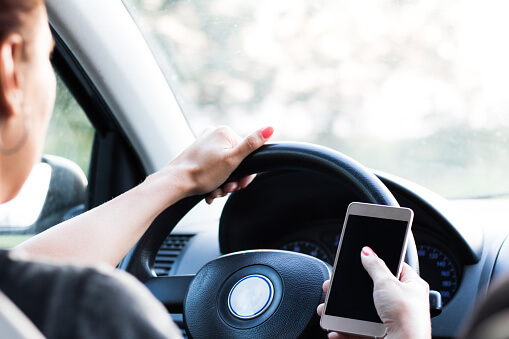Perhaps never before have drivers had so many distractions behind the wheel. Of course, food and drink, radios, children and pets have always been potential risks, as long as cars have been around. The biggest change has been technology, in particular smartphones. Now, the latest road distraction, an in-car application for placing food orders and browsing deals, is causing sharp controversy for the potential of heightened crash risks.
While technology brings many exciting possibilities and vital services, drivers must not neglect their legal obligation to operate a vehicle safely. When new technologies lead to distracted driving, a Mobile car accident attorney can help victims hold negligent drivers accountable.
The Controversial App
Bloomberg reports on the app, called “Marketplace,” which was released by General Motors. Marketplace allows drivers to place orders at many popular food chains by use of the in-vehicle touchscreen entertainment system. Starbucks, TGI Friday’s and Dunkin’ Donuts are just some of the food vendors that accept orders through the app. Marketplace also allows users to browse for hotels through Priceline.com and other travel vendors. Despite these conveniences, a major public safety group has voiced opposition to GM’s new product. The President of the National Safety Council claims that the app will contribute to distracted driving. She projects that fatality rates on the road will be even higher than they currently are, if vehicles enabled with WiFi continue to offer more distractions to drivers.
The introduction of yet another convenience at drivers’ fingertips raises worthy concern about the rising risk of distracted driving. Are food ordering apps safe? What about the entertainment information and navigation systems that are installed in many new vehicles? What legal obligation do drivers have when using these products?
Alabama Drivers Have Legal Obligations With the Use of Technology
Both Alabama statutes and case law prohibit drivers from negligently allowing themselves to become distracted behind the wheel. Section 32-5A-350 of the Code of Alabama prohibits drivers from using wireless communication devices to write, send or read a text-based communication while operating a vehicle on public roadways. Interestingly, the statute specifically includes programming a navigation app as a violation of the statute. Coordinates must be programmed into a navigation program before the vehicle is in motion.
Currently, the statute includes (but is not limited to) email, text messaging, and instant messaging. It is possible that touchscreen apps such as Marketplace could eventually be deemed “text-based communication” and be prohibited under the statute. It is also possible that different states could resolve this question differently.
In addition to the statutory prohibition of text-based communications, all drivers also have a legal duty of care while operating a motor vehicle. This duty is to act as a reasonably prudent driver would in similar road conditions and circumstances. If a driver violates this duty (for instance, by becoming distracted by a mobile device), he or she may be found legally responsible for an accident which results from this negligence. Liability also imposes a legal obligation to compensate accident victims for their injuries and losses which were the result of the accident. A Mobile car accident attorney can help answer difficult questions and resolve complicated legal issues surrounding the use of technology while driving.


